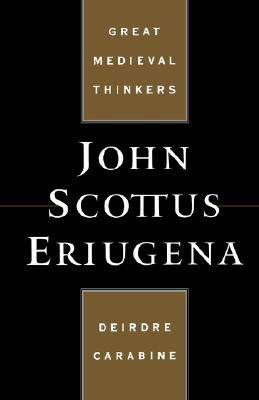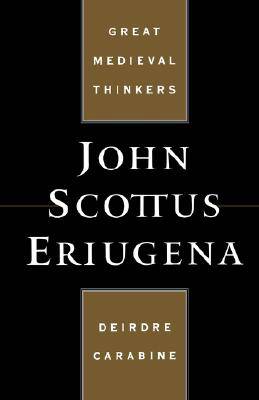
- Retrait gratuit dans votre magasin Club
- 7.000.000 titres dans notre catalogue
- Payer en toute sécurité
- Toujours un magasin près de chez vous
- Retrait gratuit dans votre magasin Club
- 7.000.0000 titres dans notre catalogue
- Payer en toute sécurité
- Toujours un magasin près de chez vous
Description
John Scottus Eriugena, the ninth-century Irish philosopher and theologian, is known as the interpreter of Greek thought to the Latin West. He was perhaps the most important philosophical thinker to appear in Latin Christendom between Augustine in the fifth century and Anselm in the eleventh. In this volume, Deirdre Carabine provides a clear and accessible introduction--the only one available in the English language--to the thought of this important figure.
In part I, Carabine describes the intellectual revival of the ninth century and situates Eriugena's role within that movement. She looks closely at Eriugena's life and intellectual achievements, including his contribution to the theological controversy on predestination and his roles as teacher and translator of Greek thought. She also examines the Periphyson, undoubtedly Eriugena's most original and important work. In part II, Carabine discusses Eriugena's metaphysics, the structure of reality, the theocentric character of creation, and the role of the trinity and the primordial causes. In particular, she explores Eriugena's employment of negative theology and his understanding of human nature. In conclusion, part III looks at Eriugena's interpretation of the return of all things to their source, including his belief that all people, saints and sinners alike, will return to paradise to the "vision" of a transcendent God.
Revealing the unique and compelling nature of Eriugena's thought, and showing why his work continues to appeal to a modern audience, this volume is required reading for students and scholars of medieval philosophy and theology.
In part I, Carabine describes the intellectual revival of the ninth century and situates Eriugena's role within that movement. She looks closely at Eriugena's life and intellectual achievements, including his contribution to the theological controversy on predestination and his roles as teacher and translator of Greek thought. She also examines the Periphyson, undoubtedly Eriugena's most original and important work. In part II, Carabine discusses Eriugena's metaphysics, the structure of reality, the theocentric character of creation, and the role of the trinity and the primordial causes. In particular, she explores Eriugena's employment of negative theology and his understanding of human nature. In conclusion, part III looks at Eriugena's interpretation of the return of all things to their source, including his belief that all people, saints and sinners alike, will return to paradise to the "vision" of a transcendent God.
Revealing the unique and compelling nature of Eriugena's thought, and showing why his work continues to appeal to a modern audience, this volume is required reading for students and scholars of medieval philosophy and theology.
Spécifications
Parties prenantes
- Auteur(s) :
- Editeur:
Contenu
- Nombre de pages :
- 144
- Langue:
- Anglais
- Collection :
Caractéristiques
- EAN:
- 9780195113624
- Date de parution :
- 09-03-00
- Format:
- Livre broché
- Format numérique:
- Trade paperback (VS)
- Dimensions :
- 139 mm x 209 mm
- Poids :
- 181 g

Les avis
Nous publions uniquement les avis qui respectent les conditions requises. Consultez nos conditions pour les avis.






